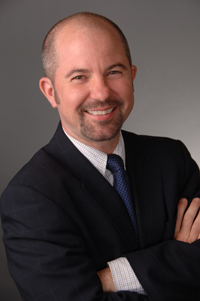
Second, Professor Cott explained that in the past, marriage law imposed strict gender roles that sharply distinguished the legal rights and duties of wives and husbands. For example, at one time, married women were unable to sign legal documents or testify in court, because they were not considered to be individual citizens – once married, a woman had no legal identity apart from her husband. But today, the law recognizes that all adults should be given equal rights regardless of gender and should be able to choose for themselves how to allocate duties in a marriage. Because modern marriage law is gender-neutral in this way, permitting same-sex couples to marry doesn’t change the law’s basic structure.
Finally, Professor Cott showed that marriage has changed significantly over the years, and that most of those changes involve “shedding inequalities.” But the central function and purpose of marriage – to enable adults to create stable families that provide enormous benefits to the couple, to children, and to society – has endured. Professor Cott testified that based on the historical evidence, permitting same-sex couples would not undermine marriage, but instead would strengthen it. Both couples and the larger community would benefit.
The remainder of the morning was taken up by the cross-examination of Professor Cott by David Thompson, one of the lawyers defending Prop 8. Thompson’s approach was to take statements out of context from Professor Cott’s deposition testimony or from her publications, and to ask her if she agreed with them.
Even at then end of two grueling days of testimony, however, Professor Cott was a model of composure and sophistication. She was not rattled by Thompson’s aggressive questioning, and was particularly firm in stating her opinion that the fundamental purpose of marriage is to create stable families, not to require that all children be raised by both of their biological parents.
Overall, Thompson’s cross-examination strategy did not succeed in undermining Professor Cott’s testimony, and toward the end Judge Walker encouraged Thompson to speed it up. From a legal strategy perspective, it’s not clear why the defense chose to spend so much time asking Professor Cott about books and articles she had written, when all of those materials had already been put into evidence. While that approach might occasionally win some points in a jury trial, in this case the judge will decide the facts. In a nonjury case, it’s sufficient (and usually preferred) for the lawyers simply to read from articles and other documents that are in evidence in their closing arguments to the judge. Given that reality, the cross-examination of Prof. Cott seemed mostly to be a waste of time that did very little, if any, good for the defenders of Prop 8.
Last up today was expert witness Professor George Chauncey, a social historian from Yale University who specializes in lesbian and gay history. He is best known for his book Gay New York: Gender, Urban Culture, and the Making of the Gay Male World, 1890-1940 (Basic, 1994), which won a number of scholarly awards. He is also the author of Why Marriage? The History Shaping Today’s Debate over Gay Equality.
Professor Chauncey testified about how government discrimination has created and perpetuated anti-gay stereotypes like those relied on by the Yes on 8 campaign. He described how criminal laws have been used to penalize same-sex intimacy and to stigmatize gay people as inherently criminal. Professor Chauncey also detailed the long history of discrimination against gay people in public accommodations – for example, for much of the twentieth century, bars were legally prohibited from serving gay patrons and often sported signs saying, for example, “gays go away” or “it is unlawful to serve homosexuals.”
Perhaps most chillingly, Professor Chauncey described deliberate government campaigns in the 1950s to demonize gay people as dangerous sexual deviants and child molesters. Those campaigns included an executive order by President Eisenhower directing the federal government to identify and fire all gay federal workers – and also requiring private businesses with government contracts to do the same. In the words of one federal publication from the 1950s, “one homosexual can ruin an entire government office.” State governments – including California — adopted similar campaigns, churning out official reports and “public education” materials labeling gay men as violent, psychopathic predators who posed a grave threat to children and families.
Toward the end of the afternoon, Professor Chauncey analyzed several videos and printed brochures used by the Yes on 8 campaign to show how they incorporated many of the same demonizing messages – particularly about the supposed need to “protect” children from gay people. For example, he explained that some of the Yes on 8 campaign messages were “a strong echo of the idea that simple exposure to gay people and gay relationships is somehow going to cause a whole generation to become gay.” Professor Chauncey’s testimony provided a powerful historical validation of yesterday’s testimony from Paul Katami and Jeff Zarrillo, both of whom described their personal experience of feeling vilified by the Yes on 8 campaign messages.
Judge Walker continues to keep this case moving, repeatedly urging counsel on both sides to “pick up the pace,” while making sure that all witnesses have ample opportunity to share their views. He deserves considerable credit for giving this enormously important and complex case the close attention and careful managing it deserves. Tomorrow, we will hear more from Professor Chauncey and additional witnesses for the plaintiffs’ side.
